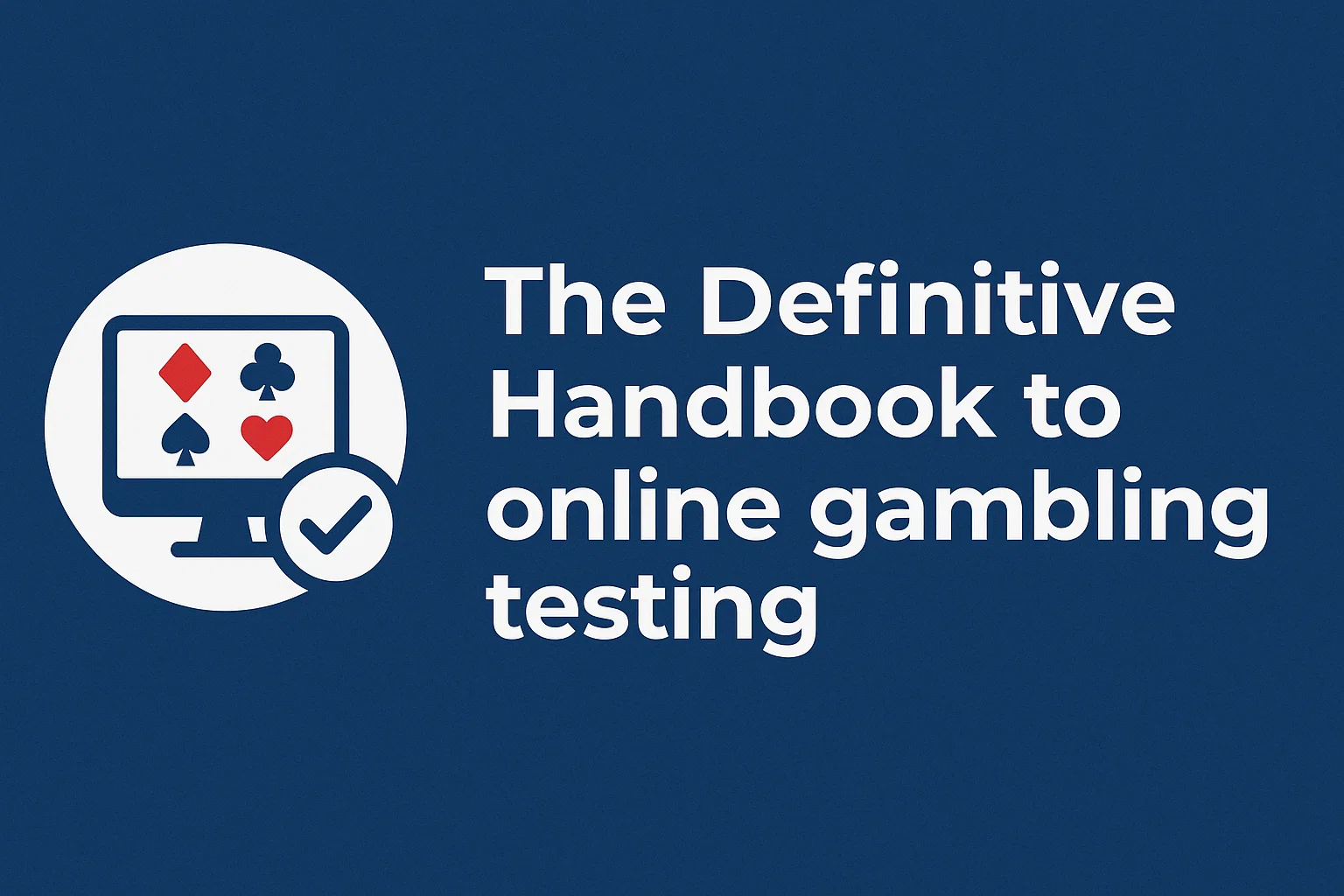
The success of the online gambling market depends on trust, fairness and an intuitive user experience. With millions of players participating across the globe, the stakes are higher than ever for software quality, security and compliance. Gambling fairness testing is critical to guaranteeing platforms are user-centric, reliable and compliant with the law.
This guide delves into the art of testing online gambling software extensively, right from the underlying methodologies and challenges through functional testing to verification of game fairness and conformity with regulation. Embracing the right approaches, equipment and expertise, your team can deliver better platforms that win player trust and exceed industry standards.
Throughout the guide we introduce T-Plan, testing automation experts and who offer tools which render complicated workflows easy and enable you to supply high-performance, ready-to-play platforms efficiently.
Why testing online gambling software is unique
Internet gambling sites are quite different from standard applications. These websites perform real-money transactions, and as such, need to be extremely reliable and secure. They also have to navigate a confusing matrix of laws that differ from place to place and mandate sites to pass extremely stringent legal and ethical tests.
The issues are not merely within gameplay. User account management, payment handling, scalability and security must all function perfectly under shifting loads. For instance, sites typically see surge traffic with major sporting events or promotions, so stress testing and performance testing is key to ensuring stability.
Types of tests required for gambling software
A comprehensive test plan for an internet gambling website or gambling software employs a variety of methods to address functionality, performance, security and usability. Let's take a closer look at:
1. Functional testing
Functional testing verifies the fundamental operations of the platform, with each function ensuring it performs as intended. For gambling websites, this includes:
- Account opening and login: Testing sign-up forms, password reset processes and multi-factor authentication mechanisms.
- Gameplay mechanisms: Verification of proper application of the game rules, bonus initiations and pay-out calculations. For example, in slot machines, functional testing ensures symbols move into place to provide pay-outs as intended.
- Transaction processes: Ensuring deposits, withdrawals and refunds go through seamlessly without data loss or inaccuracy.
Thorough functional testing provides a solid foundation for the reliability of the platform, minimizing the risk of player dissatisfaction due to glitches or failure.
2. Performance testing
Performance testing guarantees the site performs optimally under various conditions. Two of the most significant techniques are:
- Load testing: Simulates normal player behavior to determine the response time and scalability of the system. For instance, the process of testing 5,000 simultaneous users logging in or transacting guarantees the site is able to cope with normal activity.
- Stress testing: Pushes the platform to its forecasted limits, testing for breaking points and weak points. This may involve a massive surge of 50,000 users hitting the site during a big-tournament or promotion.
Early detection of performance bottlenecks allows teams to optimize the platform to handle high traffic without loss of user experience.
3. Regression testing
By ongoing updating and new functionality, regression testing maintains up-to-date functionality. For example, introducing a new function to a game should not disturb account management, payment system or other vital features.
Regression testing is particularly useful in agile development, where constant updating is standard.
4. Unit testing and user testing
Unit testing aims at separate components, like payment gateways or RNG systems, and ensures they work correctly before incorporating them into the entire system.
User testing is a test of the platform from a player's point of view, testing ease of use, visual quality and enjoyment in general.
T-Plan benefit: With T-Plan's automation capabilities, teams can run these tests effectively, generating rich reports that identify areas of improvement.
Security testing
It's not just the app's core functionality that should be tested. Online gambling sites deal with sensitive data, including personal information, payment account details and gaming records. This information must be safeguarded to facilitate trust building and avoid breaches, which can damage a platform's reputation. It's critical to focus on the following key areas:
- Penetration testing: Simulates cyber attacks to find weaknesses, such as weak passwords, susceptible APIs or unpitched software.
- Encryption verification: Verifies the existence of data protection controls such as SSL encryption to safeguard transactions and communications.
- Fraud prevention: Conducts testing for detection and prevention of activity like multi-accounting, bonus tampering or unusual betting patterns.
For example, a platform with thousands of transactions per hour might use penetration testing to identify weaknesses in its payment gateway. Through the remediation of such vulnerabilities, the platform ensures security alongside PCI DSS (Payment Card Industry Data Security Standard) compliance.
Disaster recovery and failover testing
Disaster recovery testing assures platforms can recover from unexpected crashes or hacking. Failover testing assures backup systems, routing traffic to other servers with minimal disruption to gameplay.
T-Plan's RPA tools safely automate these processes, ensuring teams can have sound security in place without maximal manual effort.
Last words: building trust in gambling software
Systematic testing ensures quality, security and compliance in all aspects of an online gaming platform. By adopting robust methodologies and harnessing T-Plan's advanced tools, developers are able to develop platforms that inspire confidence, enhance player satisfaction and achieve industry-leading levels.